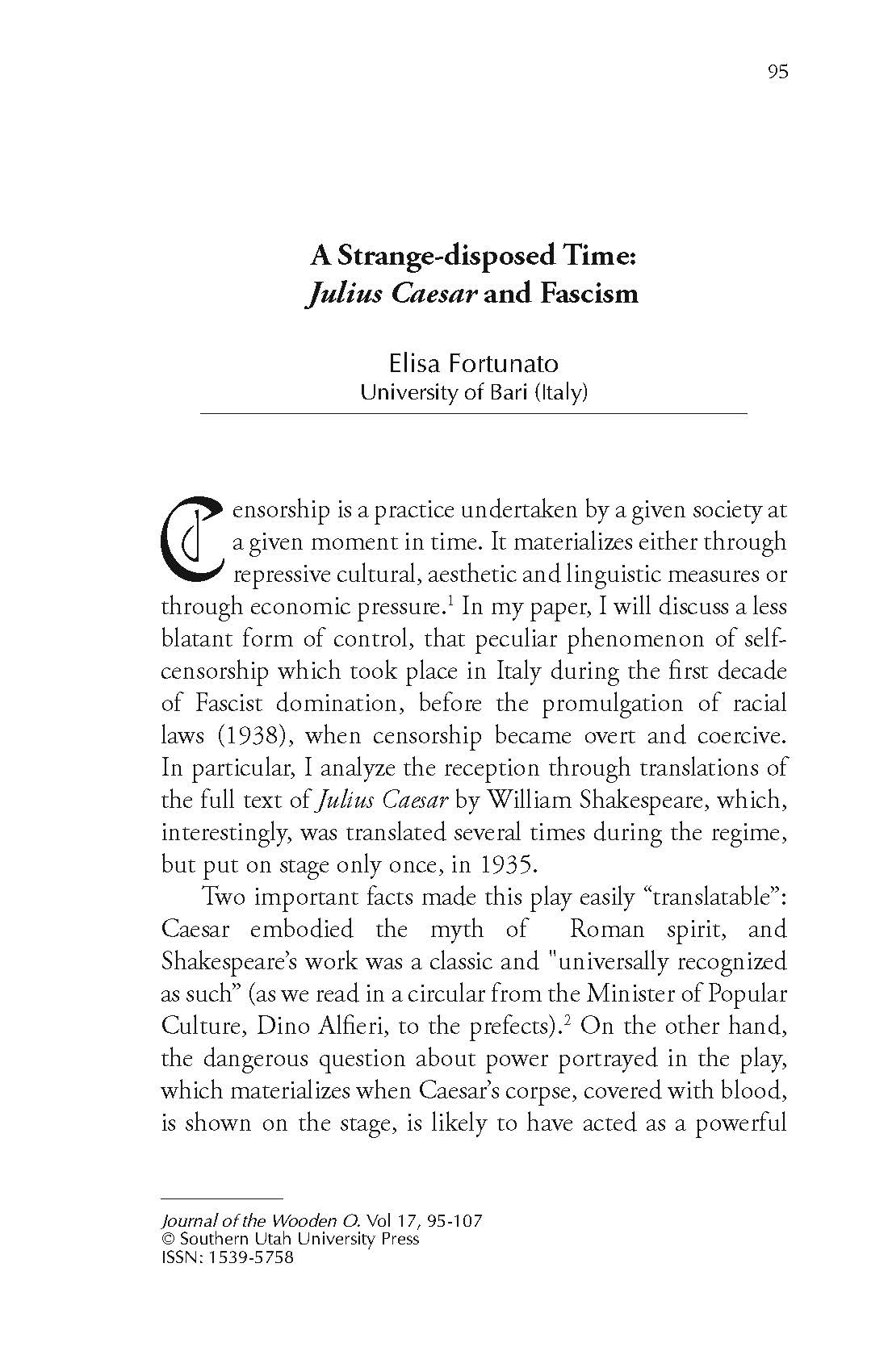A Strange-disposed Time: Julius Caesar and Fascism
Main Article Content
Abstract
Censorship is a practice undertaken by a given society at a given moment in time. It materializes either through repressive cultural, aesthetic and linguistic measures or through economic pressure.1 In my paper, I will discuss a less blatant form of control, that peculiar phenomenon of selfcensorship which took place in Italy during the first decade of Fascist domination, before the promulgation of racial laws (1938), when censorship became overt and coercive. In particular, I analyze the reception through translations of the full text of Julius Caesar by William Shakespeare, which, interestingly, was translated several times during the regime, but put on stage only once, in 1935.
Article Details
Section
Articles
